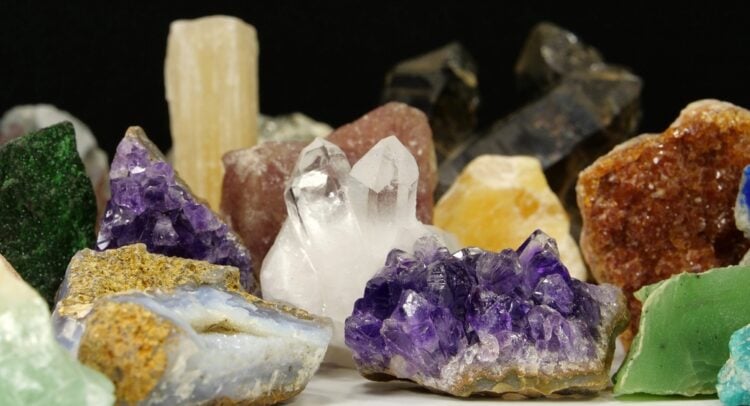China has eased export rules on rare earths and other vital minerals after talks in Busan between U.S. President Donald Trump and Chinese President Xi Jinping. The move signals a pause in a trade fight that disrupted chip and battery supply chains.
Meet Your ETF AI Analyst
- Discover how TipRanks' ETF AI Analyst can help you make smarter investment decisions
- Explore ETFs TipRanks' users love and see what insights the ETF AI Analyst reveals about the ones you follow.
China’s Ministry of Commerce said it will suspend export limits announced in October that covered rare earth elements, lithium battery materials, and related processing tools. It also rolled back bans set in December 2024 on gallium, germanium, antimony, and super-hard materials such as synthetic diamonds and boron nitride. In addition, China has relaxed strict checks on graphite exports to the U.S.
On the American side, the government agreed to cut some tariffs on Chinese goods by 10%, pause new reciprocal tariffs until late 2026, and delay a rule that would have added more Chinese firms to its entity list. The steps mark a short-term trade truce that helps both sides secure steady access to key materials used in chips, batteries, and defense systems.
Who Stands to Gain
Several companies now stand to benefit from this policy shift. Semiconductor producers such as Intel (INTC), Texas Instruments Incorporated (TXN), Qualcomm Incorporated (QCOM), and ON Semiconductor Corporation (ON) rely on gallium and germanium for the fabrication of advanced chips. The rollback could lower costs and ease supply risk.
Rare earth and magnet producers MP Materials Corporation (MP) and Lynas Rare Earths Limited (LYSDY) also stand to benefit. Both rely on Chinese refining and processing steps for magnet-grade metals used in electric vehicles and wind turbines.
Electric vehicle and battery firms, such as Tesla (TSLA), General Motors Company (GM), QuantumScape Corporation (QS), Microvast Holdings (MVST), and Enovix Corporation (ENVX), benefit from smoother flows of lithium and graphite. A more predictable supply could stabilize costs and support expansion plans.
Apple (AAPL) and NextEra Energy (NEE) may also benefit from these advantages. Both rely on rare earths and battery materials for their products and clean energy projects.
In China, battery and mining leaders such as Contemporary Amperex Technology Co. Limited, BYD Company (BYDDF), and China Northern Rare Earth Group High Tech Co. Ltd. benefit from restored global demand and fewer export hurdles. Overall, the rollback offers near-term relief to both sides. Yet, the suspension lasts one year, and both governments still view critical minerals as tools in the broader trade and tech rivalry. For now, though, smoother supply chains should help chip, auto, and clean energy firms plan with more confidence.
Using TipRanks’ Comparison Tool, we lined up all the tickers from this piece across the mineral, chip, EV, and tech space.

















